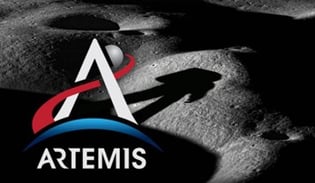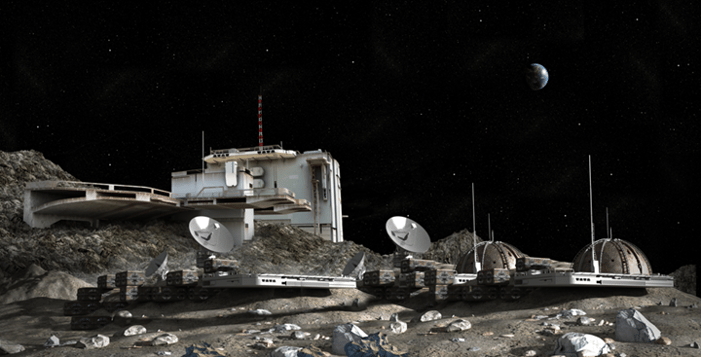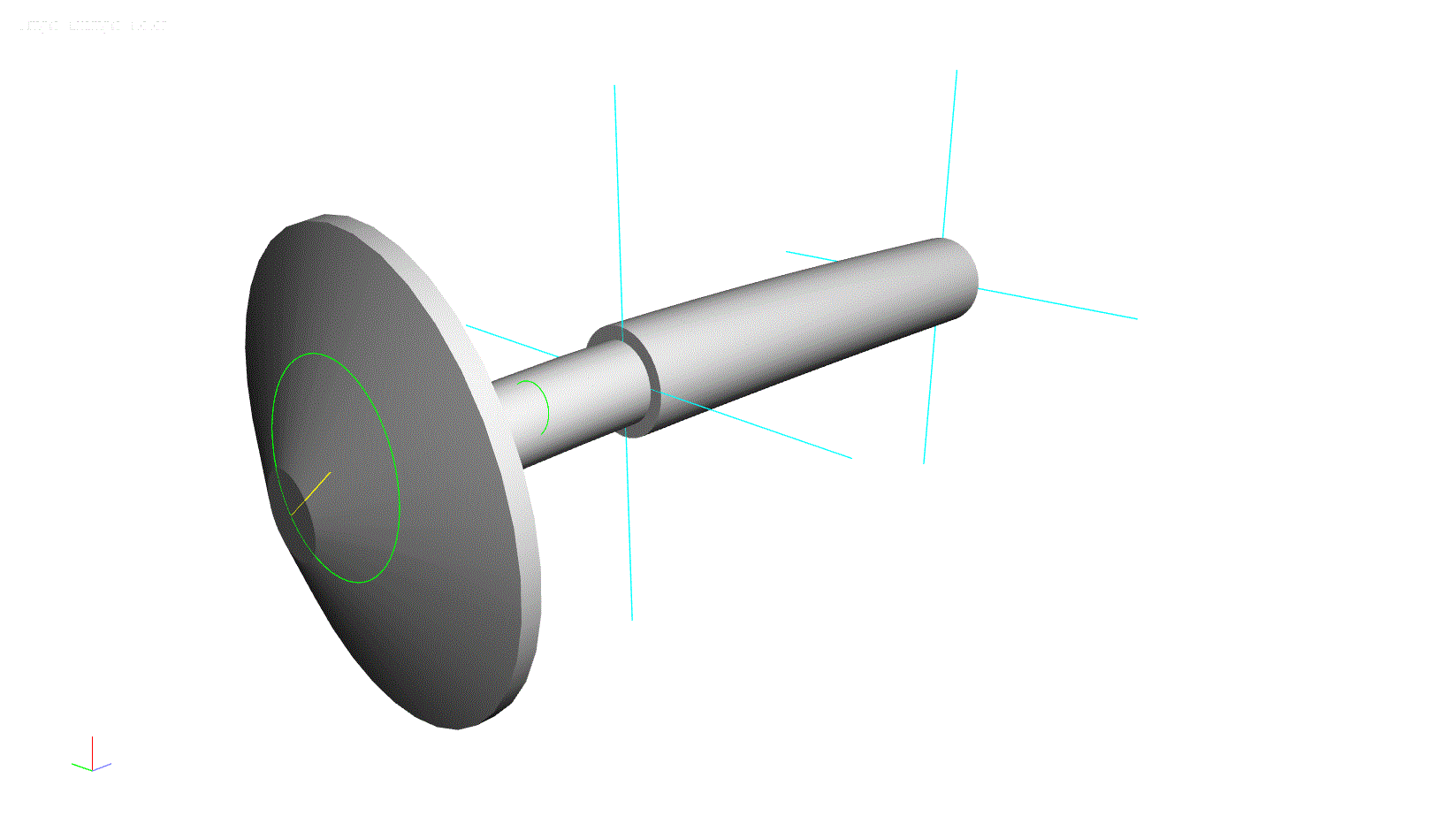The United States is returning to the moon – to stay – and the team at Concepts NREC is helping them get there.
While Apollo placed the first steps on the Moon, NASA's Artemis program is opening the door for humanity to sustainably work and live on another world for the first time.
Using the lunar surface as a proving ground for living on Mars, this next chapter in exploration will forever establish the United States' presence in the stars.

In support of the Artemis program, Concepts NREC is partnering with NASA on the design and demonstration of a novel integrated two-stage helium system capable of supporting both oxygen and hydrogen liquefaction needs on the Moon. (photo: NASA)
After decades of exploration, scientists expect the moon to possess a wealth of valuable natural resources. Many rare earth metals await extraction to be used in next-generation electronics, but there is one resource in particular that has excited scientists, rocket engineers, space agency officials, and virtually anyone with a vested interest in making spaceflight to distant worlds more affordable . . . water.
One NASA estimate suggests that there might be 600 million metric tons of lunar ice available to harvest, and other agencies say one billion metric tons is a possibility. Once the ice is turned into water, rocket fuel can be created by splitting water into oxygen and hydrogen and then liquefying those components. If you could refuel at a lunar base or in the moon's orbit rather than having to carry all your propellant with you at launch, spacecraft could be lighter and launch more affordably.

(Photo: iStock)
This is where Concepts NREC comes in. Our team previously developed advanced and light weight turboalternator powertrain technology for NASA which we will now upgrade to handle larger thrust loads and higher rotational speeds at lunar surface ambient conditions. The expanded capability of the newly developed compressor powertrain will increase the current state-of-the-art in cryogenic cooling by an order of magnitude. The results of our research and efforts will also provide valuable input into NASA’s ongoing Cryogenic Fluid Management directives.
“Concepts NREC is honored and excited to continue our work with NASA in support of the Artemis missions,” comments Mark Anderson, Chief Technology Officer. “In collaboration with commercial and international partners, our innovative cryocooler solutions will allow NASA to establish the first long-term presence on the Moon and to explore, harvest, and transform natural resources from the lunar surface. Then, NASA will use what they learn on and around the Moon to take the next giant leap: sending the first astronauts to Mars.”
“Artemis is the first step in the next era of human space exploration” continues Anderson. “The team at Concepts NREC is proud to play a role in the development of key systems and technologies to allow astronauts and robots to conduct ground-breaking lunar research and to set the stage for space exploration to Mars and beyond for decades to come.”
The team here at Concepts NREC is proud to continue our legacy of bringing novel turbomachinery solutions and groundbreaking ideas to life. From clean and efficient renewable energy and power generation solutions to propelling the most efficient aircraft and rocket engines, our designs break barriers, broaden horizons, and realize possibilities not yet imagined for a sustainable future and for the benefit of all humankind.
If you have the next bold or creative idea in turbomachinery and need a partner to help your dream become a reality, contact us. We would welcome the opportunity to talk with you and to earn your business and trust.





